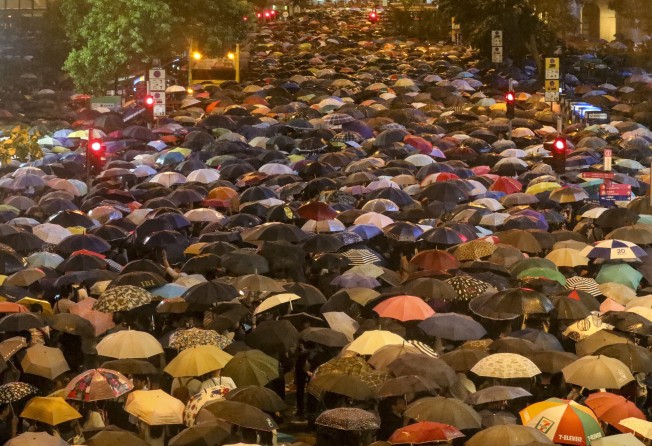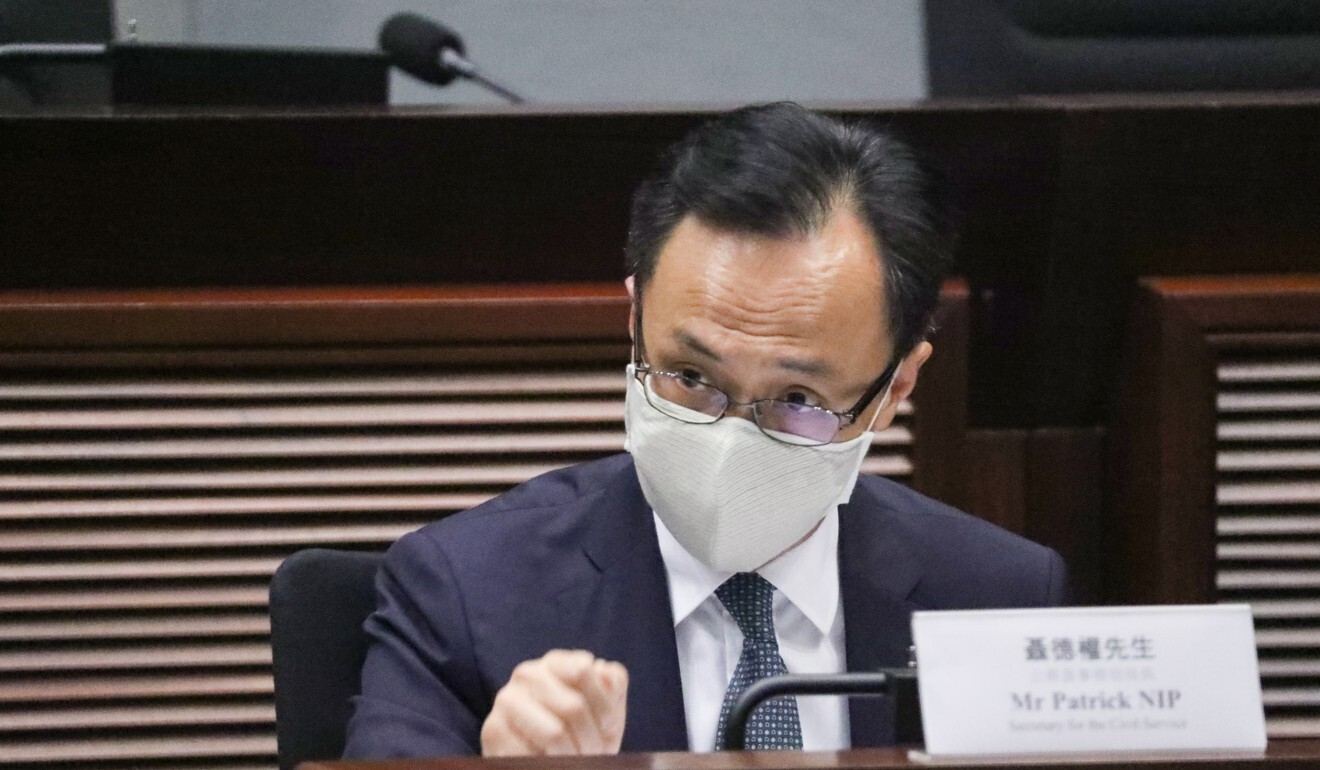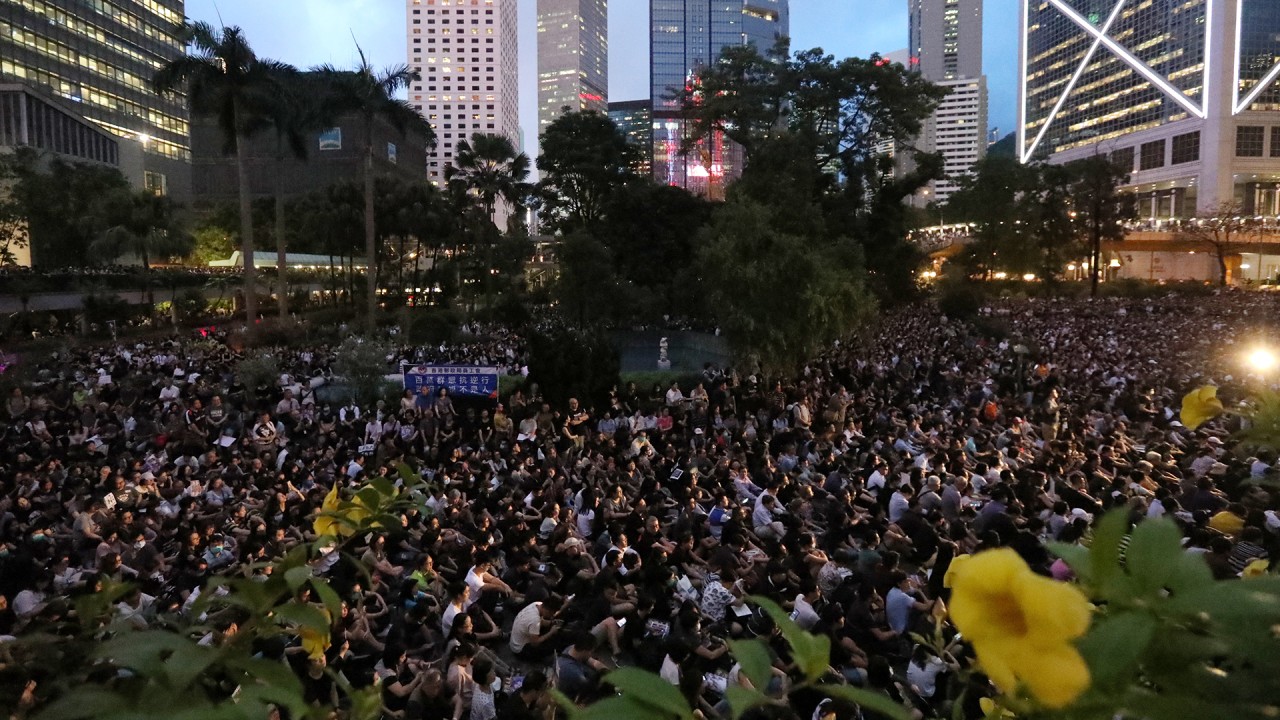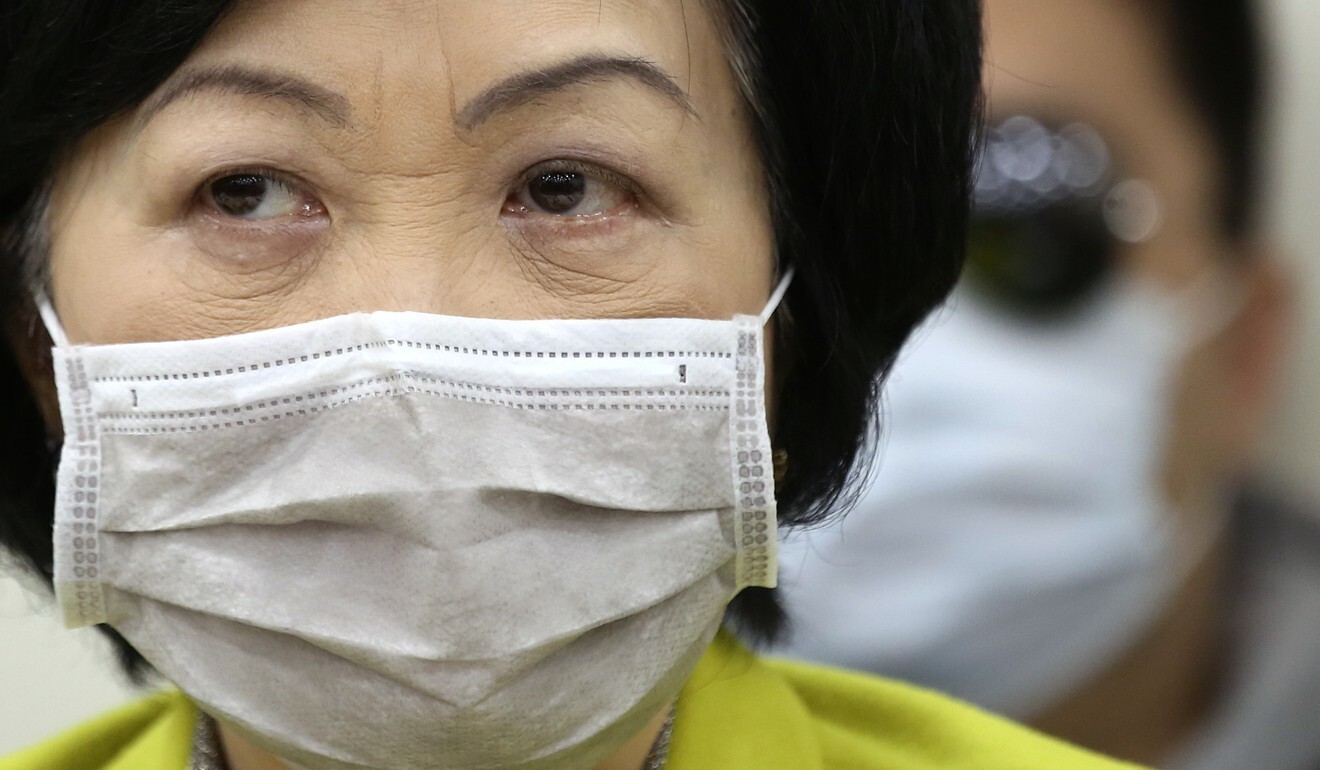National security law: Hong Kong civil servants not allowed to join anti-government protests under new proposals, city minister warns
- Patrick Nip speaks on latest plans for employees which also require them to swear allegiance in writing and uphold Basic Law
- Proposed rules come nearly a year after government workers part of mass protest in support of civil unrest

Hong Kong’s civil servants will not be allowed to join anti-government protests under new requirements proposed for employees to swear allegiance to the city and uphold its mini-constitution, a minister has warned.
Secretary for the Civil Service Patrick Nip Tak-kuen also said authorities had “agreed in principle” that staff members of publicly funded institutions, including universities, schools and hospitals, should make similar pledges, under a sweeping national security law imposed by Beijing on June 30.
Article 6 of the new law states that Hong Kong residents standing for election or assuming “public office” shall confirm in writing or take an oath to uphold the Basic Law, and swear allegiance to “the Hong Kong Special Administrative Region of the People’s Republic of China”.
Nip was speaking in a Legislative Council panel meeting on Friday to explain the government’s latest proposals that required new and some serving civil servants to take vows, but he fell short of addressing concerns on the consequences of non-compliance or cases involving breach of the oaths.

The proposal unveiled on Wednesday stated that the city’s 180,000 civil servants would be required in writing to swear allegiance, with priority given to those employed from July 1, as well as those recommended for promotion or whose duties were deemed “crucial” or “sensitive”.
In the panel meeting, the minister told lawmakers that the requirements were necessary in view of “acts against the Hong Kong and central government” in the past. He warned against deeds and speeches that could be perceived as opposing the government.
“Civil servants shall uphold political neutrality, meaning that they should support the administration and implement government policies. Any participation in anti-government protests will surely go against [the new requirements],” Nip said.

03:06
Hong Kong’s civil servants, medical personnel rally against government handling of extradition bill crisis
The proposed rules came nearly a year after an estimated 40,000 government workers and residents joined a mass assembly in Central last August in support of the anti-government protests. Organisers of the rally were members of a new civil servants’ union which has been vocal on government policies.
At the meeting on Friday, Democratic Party lawmaker Roy Kwong Chun-yu called for clear guidelines about possible consequences for non-compliance with the requirements.
“Will they be reprimanded, sacked, or even face criminal liabilities? They are just employees of the government,” he said.
Education sector representative Ip Kin-yuen also asked: “The Civil Service Code binds their acts while discharging duties. So how will their pledges restrict what they do after work?”
Nip did not detail how the authorities would pursue cases involving breach of the oath. He only said officials needed time to review whether it was necessary to strengthen relevant mechanisms.
But he reminded fellow workers to stay vigilant on whether “their acts would be in contrary to their identities in the government”.

Opposition lawmakers on Friday also sought clarification on the term “public office”, while pro-establishment lawmaker Regina Ip Lau Suk-yee urged authorities to extend the requirement to staff from all public bodies, including universities, public schools and the Hospital Authority.
“If new teachers do not respect the Basic Law, they should have left the job ... Teachers have earned better pay than many in other sectors. There’s no reason why they do not need to fulfil their responsibilities in accordance with the new law,” the former security minister said.
In response, Nip said the government agreed in principle that employees of publicly funded institutions should also be required to pledge allegiance. But officials would need to study the legal grounds further before this could be implemented, he added.
Before the national security law was imposed last month, Nip had warned public officers against joining an unofficial referendum on the legislation. He also singled out the Union for New Civil Servants, one of the organisers, for “blatantly mobilising” government workers to take part in the event.
Separately, Chief Executive Carrie Lam Cheng Yuet-ngor’s cabinet, the Executive Council, turned down an independent commission’s recommendation on improved remuneration for lawmakers. The Exco decided that the existing package should remain unchanged in the next term, which starts in October.
Each lawmaker will continue to earn HK$101,000 a month, and is eligible to receive HK$2.8 million in annual reimbursement for office expenses.
A government spokesman revealed that after a review, a commission had recommended proposals to enhance the remuneration package.
“[The Exco] considered it inappropriate to take them forward, having regard to such factors as the prevailing local economic downturn ... as well as the recent government decision to freeze civil service pay [and] the pay of politically appointed officials.”